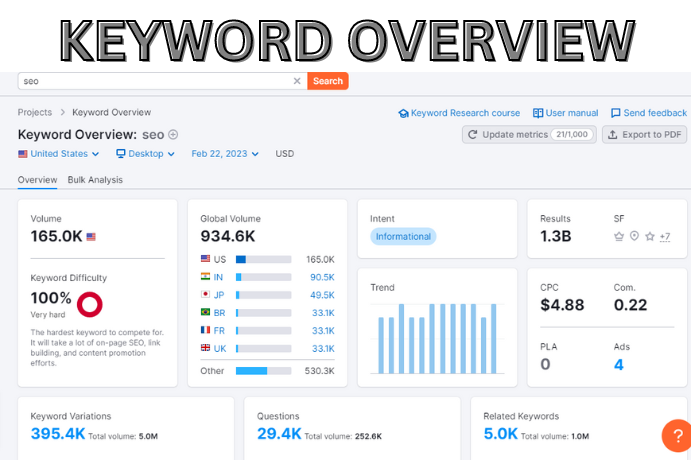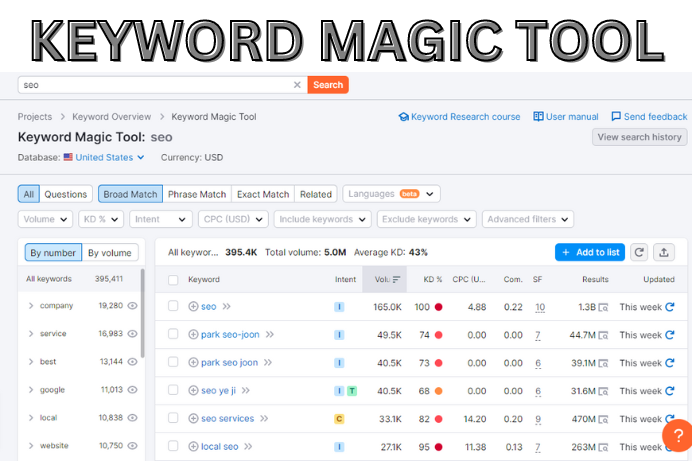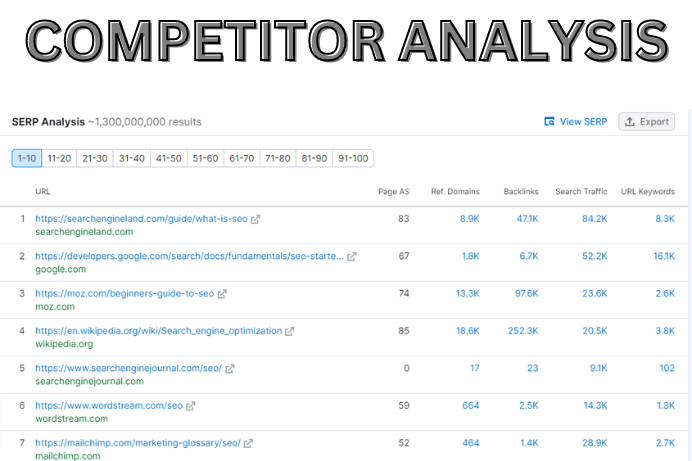For every successful SEO strategy, keyword research plays a vital role. It is helpful to understand what keywords are searched by your target audience and what queries you should target in content to double your website traffic. You have encountered many tools, but how to SEMrush for keyword research, we will discuss step-by step strategy.
SEMrush is one of the most popular and effective SEO tools that can help you to perform keyword research. In this blog, we will guide you on how to use SEMrush for keyword research.
Why SEMrush is Important for Keyword Research?
SEMrush is a comprehensive SEO tool that can help you to perform keyword research in a more effective way. It provides you with valuable insights into your competitors’ keywords, their search volumes, and their ranking positions. It also gives you information on related keywords, long-tail keywords, and questions that people are asking related to your niche. Moreover, SEMrush helps you to discover new keyword opportunities and track your keyword rankings.
How to Use SEMrush Keyword Research for SEO?
Here, we will discuss steps to use:
Start with keyword overview:
The first step in using SEMrush keyword research tool to start with the Keyword Overview tool. This tool provides you with an overview of the search volume, keyword difficulty, and the number of search results for a particular keyword. It also shows you the trend of the keyword over the past 12 months. By using this tool, you can quickly determine the search volume and competition level of a particular keyword. It is also used to search Youtube keywords to rank videos.
Use Keyword Magic Tool:
The Keyword Magic Tool is one of the most powerful features of SEMrush. It allows you to generate a list of relevant keywords based on your seed keyword. You can also filter the results based on search volume, keyword difficulty, and other criteria. Additionally, you can group the keywords into different clusters to create a more organized keyword list.
Analyze your competitors:
Another useful feature of SEMrush is the ability to analyze your competitors’ keywords. By entering your competitor’s domain into SEMrush, you can get a list of keywords that they are ranking for. You can then use this information to optimize your own content for those keywords or identify new keywords to target.
Check the Keyword Difficulty:
SEMrush provides a Keyword Difficulty tool that estimates how difficult it will be to rank for a particular keyword. This tool takes into account various factors such as the number of websites that are already ranking for the keyword, their domain authority, and the strength of their backlink profile. By using this tool, you can identify keywords that are relatively easy to rank for and prioritize your keyword targeting.
Conclusion:
SEMrush is an essential tool for keyword research that can help you to discover new opportunities, optimize your content, and track your keyword rankings. By using SEMrush’s Keyword Overview tool, Keyword Magic Tool, competitor analysis, and Keyword Difficulty tool, you can create a comprehensive keyword strategy that drives more traffic to your website.
Remember that keyword research is an ongoing process, and you should continue to monitor your keyword rankings and adjust your strategy as needed. With SEMrush, you can stay on top of your keyword game and continue to grow your online presence.
FAQs
Q1. Is SEMrush only for keyword research?
No, SEMrush is a comprehensive SEO tool that provides a wide range of features including site audit, backlink analysis, and content optimization. However, keyword research is one of its primary features.
Q2. Can I use SEMrush for free?
SEMrush offers a 7-day free trial, which allows you to use most of its features. However, you need to subscribe to one of its paid plans to continue using SEMrush after the trial period.
Q3. How accurate is SEMrush’s keyword data?
SEMrush’s keyword data is highly accurate and reliable. It uses a variety of sources including Google Keyword Planner, Google Analytics, and its own proprietary data to provide accurate keyword metrics.


